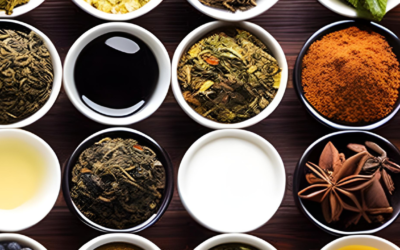Discover the Best Natural Remedies for Anxiety and How to Lower Stress

Introduction: Nature’s Bounty for Stress and Anxiety Relief
In today’s fast-paced world, stress and anxiety are all too common. Everyone feels stressed or anxious sometimes.
However, long-term stress and anxiety can have a negative impact on your overall well-being – mentally and physically.
Feel calmer, more balanced, and healthier with the help of nature. Many natural remedies, backed by both science and old-time wisdom, can make a real difference.
Stress got you down? Here we will explore natural ways to ease anxiety and stress, with simple, research-backed tips you can use every day—from herbal teas to mindfulness practices—to boost your well-being.
Understanding Stress and Anxiety
Stress is your body’s response to external pressures or demands, while anxiety is a feeling of worry or unease about future events. Both can be triggered by work, finances, relationships, or major life changes.
Stress and anxiety can really mess with you. You might find your mood up and down, it’s hard to focus, sleep becomes a problem, and you could even get headaches, tense muscles, or stomach trouble.
Stress less, live healthier. Learning coping mechanisms is key..
Common Causes of Stress and Anxiety
- Work or academic pressures
- Financial concerns
- Relationship challenges
- Major life transitions (e.g., moving, loss, illness)
- Traumatic events
Identifying the root causes is the first step toward effective relief. Handling stress effectively? Feeling great is all about this! Seriously.
Unchecked stress and anxiety can contribute to:
- Insomnia and fatigue
- Irritability and mood disorders
- Weakened immune function
- Increased risk of depression and anxiety disorders
- Physical symptoms (headaches, muscle pain, digestive upset)
Learning how to manage stress and anxiety is essential for preventing these negative health impacts.
Nature’s Best Remedies for Stress and Anxiety Relief
- Mindfulness and Meditation
Practicing mindfulness and meditation helps ground you in the present moment, reducing racing thoughts and emotional overwhelm.
Regular meditation has been shown to lower cortisol (the stress hormone) and improve mood.
Take a mindful walk outside, try some deep breaths, or unwind with a guided meditation. Easing anxiety naturally? Stress relief? Yes, these work.
- Herbal Remedies
Certain herbs have calming properties and have been used for centuries as natural remedies for anxiety:
- Chamomile: Promotes relaxation and better sleep.
- Valerian Root: Acts as a gentle sedative for anxiety and insomnia.
- Lavender: Calming nerves and easing anxiety.
- Lemon Balm & Passionflower: Soothe nerves and support restful sleep.
- Ashwagandha & Rhodiola: Adaptogens that help the body manage stress.
Just a thought… Always get your doctor’s okay before starting herbal supplements. This is very important if you’re taking prescription or over-the-counter drugs, as there might be harmful interactions.
- Essential Oils and Aromatherapy
Aromatherapy uses plant-based essential oils to promote relaxation and relieve stress:
- Lavender Oil: Proven to reduce anxiety and improve sleep quality.
- Bergamot Oil: Uplifts mood and eases tension.
- Ylang-Ylang, Chamomile, Frankincense: Each offers unique calming effects.
Diffuse oils, add them to a bath, or inhale directly for quick relief. Quick stress relief and ways to calm anxiety are really helpful.
- Exercise and Physical Activity
Regular movement releases endorphins, natural mood-boosters that combat stress and anxiety. Options include:
- Brisk walking or jogging
- Yoga or tai chi
- Team sports or dance
Aim for at least 30 minutes of activity most days of the week. Stress got you down? Unwind with yoga; it’s amazing for stress relief.
- Diet and Nutrition
What you eat affects your mood and stress resilience. A healthy diet is crucial for natural stress relief:
- Eat: Colorful fruits, vegetables, whole grains, lean proteins, omega-3-rich foods (like salmon, walnuts, flaxseed).
- Limit: Caffeine, alcohol, processed foods, and added sugars, which can aggravate anxiety.
Consider magnesium-rich foods (spinach, nuts) and probiotic-rich foods (yogurt, kimchi) for added benefits in managing stress and anxiety.
- Nature Therapy
Spending time outdoors—whether gardening, hiking, or simply sitting in a park—lowers stress hormones and boosts mood.
Even a short daily walk in nature can make a difference in how to reduce anxiety and relieve stress.
- Digital Detox
Constant screen time and social media can fuel anxiety. Schedule regular breaks from devices to reconnect with yourself and your surroundings.
Reducing stress is easy with this approach; it paves the way for a calmer lifestyle.
- Sleep Hygiene
Prioritize restful sleep by:
- Keeping a consistent bedtime routine
- Limiting screens before bed
- Using calming teas (like chamomile) or aromatherapy
Good sleep hygiene is essential for stress relief and can significantly impact how you manage stress and anxiety.
- Professional Support
If stress or anxiety is overwhelming or persistent, seek guidance from a mental health professional. Therapy, counseling, and—when appropriate—medication can provide tailored support.
Long-term anxiety and stress management? Facing challenges? CBT (Cognitive behavioral therapy) teaches you practical strategies to manage them effectively; it’s like getting a toolbox full of coping mechanisms.
Comparison Table: Natural Remedies for Stress and Anxiety
| Remedy | Evidence Level | Best For | Notes |
| Mindfulness/Meditation | Strong (clinical) | All types | Free, accessible, daily use |
| Herbal Remedies | Moderate | Mild-moderate symptoms | Consult provider before use |
| Essential Oils | Moderate | Acute stress, sleep | Use as supplement, not sole |
| Exercise | Strong (clinical) | All types | Consistency is key |
| Diet/Nutrition | Moderate-Strong | All types | Supports overall health |
| Nature Therapy | Growing | Mild-moderate symptoms | Combine with other remedies |
| Digital Detox | Emerging | Tech-related stress | Set boundaries |
| Sleep Hygiene | Strong | Insomnia, anxiety | Foundational for all health |
| Professional Support | Strong | Severe, persistent cases | Personalized care |
Action Steps: Your Personalized Plan for Anxiety and Stress Relief
- Identify your main stressors.
- Choose 2–3 remedies to start (e.g., daily meditation, herbal tea, outdoor walk).
- Monitor your mood and any symptoms you experience.
- Adjust and combine strategies as needed.
- Don’t hesitate to get professional help if your symptoms continue or intensify.
Don’t forget to schedule in some “me time”—relaxation and self-care are key to managing stress.
Conclusion
Stress and anxiety? Nature? It’s a powerhouse of helpfulness. Seriously. Mindfulness, herbs, good food, and even just being outside can really make a difference.
Incorporate these strategies into your daily routine. You’ll be amazed at how much calmer, more resilient, and joyful you feel, even when life throws curveballs.
Let’s not forget. Remember to take care of yourself; ask for help when you need it. Stress and anxiety relief? It’s a process, and getting help is perfectly fine.
Conquer your stress and anxiety today! Start with one remedy today and build your path to lasting relief!
Deep breaths, relaxing your muscles, and connecting with friends—these are all great ways to quickly ease anxiety and feel better overall.
RELATED POSTS
Exploring Unique and Intriguing Varieties of Black Tea
Explore the rich world of black tea—from Assam to Darjeeling, brewing tips, health benefits, and cultural traditions, one cup at a time.
30 Easy Healthy Meal Ideas for Breakfast, Lunch & Dinner
Discover 30 healthy meal ideas for breakfast, lunch, and dinner. Get easy, balanced recipes to boost energy, support weight loss, and improve overall health.
The Secret to a Vibrant Old Age? Strengthening Your Muscles!
Living a full life as you get older? It’s possible! Muscle growth starts now.
Imagine chasing after your grandkids or carrying groceries with ease.
FOLLOW DISCOVERY BLOGGER









0 Comments